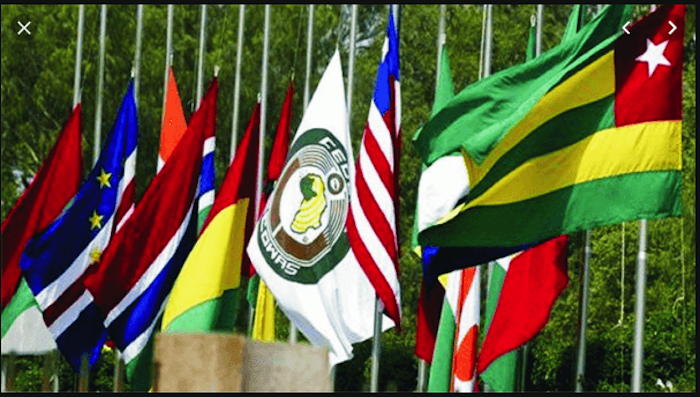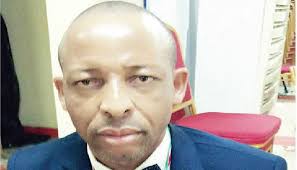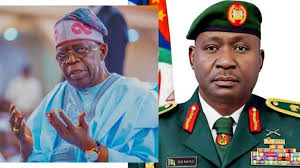
The Economic Community of West African States (ECOWAS) has called on Islamic scholars to devise a workable arrangement to tackle extremism and fight back terrorism in the West African subregion.
Speaking at the West African Islamic Conference on Security & Governance, on Thursday in Abuja, the President of ECOWAS Commission, Dr. Omar Alieu Touray said terrorism and violent extremism are threats to the sub-region’s peace and development.
Touray promised to support the modernisation of the Quranic educational system in the subregion, while praising Nigeria’s President Bola Tinubu for his plan to return out of school children back to school..
He stressed the need to protect the schools, students and teachers, with the ultimate aim of ending the phenomena of street-begging, child abuse, and the vulnerability of the Quranic schools’ goers to radicalization and recruitment by extremism and terrorist groups.
Touray said: “This gathering is a demonstration of our continued commitment to the pursuit of peace and security in West African. In the last decade, terrorism and violent extremism have exerted a huge toll on the socio-economic well-being of our people. West Africa and Israel have become the front lines of the global fight against terrorism. The 2025 Global Terrorism Index report reveals a significant shift in global terrorism patterns, with Africa emerging as the new hub of terrorism. The Sahel region, in particular, has seen a dramatic increase in terrorism. For us now, we have emphasized the application of non-kinetic and kinetic strategies in tackling the menace.
“Our Regional Action Plan Against Terrorism outlines a series of initiatives in this regard. This plan provides roles for multiple actors from both state and non-state institutions.
“Therefore, this conference, which examines the role of Islamic organisations in countering terrorism and violent extremism, fits squarely with the regional non-kinetic initiatives.
“Terrorism and violent extremism are a threat to our communities. We must therefore work both to prevent extremism and tackle terrorism, wherever it occurs. In a region with a youthful population, it is important to pay attention to the situation of these youths and support them to channel their energies to positive activities.
“The situation of the traditional Quranic schools, known as the Tsangaya in Nigeria, Makaranta in Ghana, the Daraa in the Semigandian area, is the focus of our Preventive Action Against Radicalization and Violent Extremism in this country.
“The condition of these youths in our region is one that demands our urgent attention.
“We need to improve and modernize the school system and convert them into conducive and formalized centers of learning and economic empowerment.
“These schools accommodate millions of young people in the region, but they are not given the attention they require. The situation makes both the teachers and their students vulnerable to recruitment by criminal organizations, including terrorist groups.We cannot therefore ignore these important institutions and democracies.
“We are therefore pleased to see that the custodians of these traditional Quranic schools have come forward to take the lead in their modernization across West Africa and the Sahara. ECOWAS invites all stakeholders here and elsewhere to support this initiative led by the Jamiat Ansari Fideli at Tijaniyya.In supporting the initiatives of our religious organizations, we are also complementing the efforts of our national government and regional organizations.”
He commended President Bola Tinubu who has established the National Commission for Alimajiri and Arab School Children Education to support the provision of quality religious and non-religious education. He also commended Ghana and Senegal for their various policies to address situations.
“The goal is to better supervise and calibrate children, eradicate forced begging, and support educational structures that need to be established,” he added.
Besides the government initiatives, there are others led by foundations and non-governmental organisations.
He also assured that “Together with the UN and other stakeholders, we will, inshallah, work with governments and other stakeholders to build on the outcome of this conference by implementing joint projects for the modernization of the traditional Quranic schools.Protecting these schools, their students and teachers, will end the phenomena of street begging, child abuse, and the vulnerability of the Quranic school goers to radicalization and recruitment by extremism and terrorist groups.
“Excellencies, let us spare no effort to secure West Africa and the Sahel from insecurity and reverse the negative indices for a stable, peaceful, united, and prosperous Africa…”
The Emir of Kano, Sanusi Mohammed II charged scholars to help create peace and harmony within the sub-region.
He said: “Let us strive to create a region where every individual can live in peace, security, and dignity. Let us work together to build a brighter future for our children and our community.
“In closing, I would like to say that this conference is not the end, but the beginning. It is a step towards a new era of cooperation and collaboration in West Africa and the South. Let us remain committed to our shared goals, and work together to create a region of peace, stability, and prosperity for all.”
Some of the resolutions of the conference include: Participants advocating for reforms that blend Islamic and formal education, improved funding, teacher training, and policy inclusion to restore the system’s relevance; calling for collaborative efforts among government, religious leaders, and stakeholders to modernize and sustain the Almajiri system.
They agreed on the need for collaboration between government, scholars, and security agencies to strengthen counter-terrorism education, promote interfaith dialogue, and enhance social inclusion, adding that empowering Islamic leadership is essential for sustainable peace, national security, and community resilience against terrorism.
They called for structured peace education, collaboration with government, civil society and capacity building for Imams in mediation and dialogue; and advocate that Islamic organisations remain critical partners in fostering social harmony, preventing violence, and sustaining peace across diverse communities.
They call for multi-sectoral collaboration among government, religious institutions, and civil society to promote youth empowerment, civic engagement and social justice; and insisted that radicalisation requires holistic, sustainable interventions that tackle inequality and restore trust between citizens and the state.
They called on government to support, community involvement and policy inclusion to restore dignity and purpose to Almajiri education; affirming that education reform is key to empowerment, productivity and national development.
They called for strengthening grassroots structures, including youth groups, women’s associations, and religious councils, to lead awareness, dialogue, and early-warning efforts, also calling for comprehensive reforms integrating Islamic and Western curricula, skill acquisition, and digital literacy to prepare learners for modern opportunities.
They said there is need for government and development partners to support community-based peacebuilding with funding, training, and policy inclusion, and the need for empowering communities as active agents of security fosters resilience, social cohesion, and long-term stability in the fight against violent extremism.
They agreed that terrorists are indifference to what faith anybody belongs and as a result both Muslims and Christians everywhere, particularly Nigeria, are victims of their violent inclined approach.
They noted and appreciated the establishment of the commission on the Almajiri traditional system and the recognision of the teachers therein as such; and called on Muslims and Christians to continue to genuinely cooperate and understand themselves in order to frustrate the attempts of the successes of negative interests and pitching them against each other.


